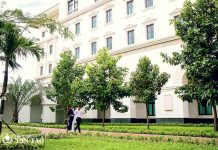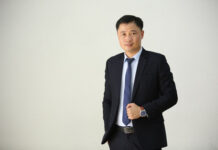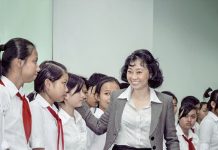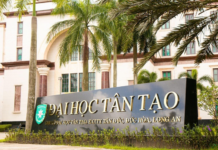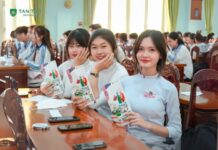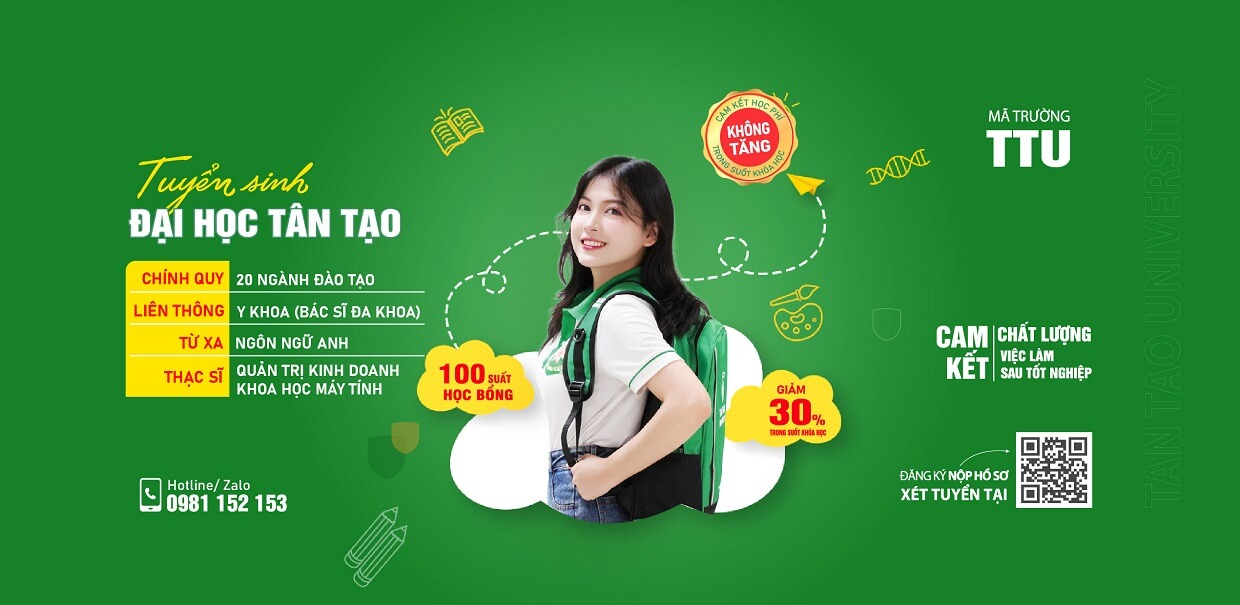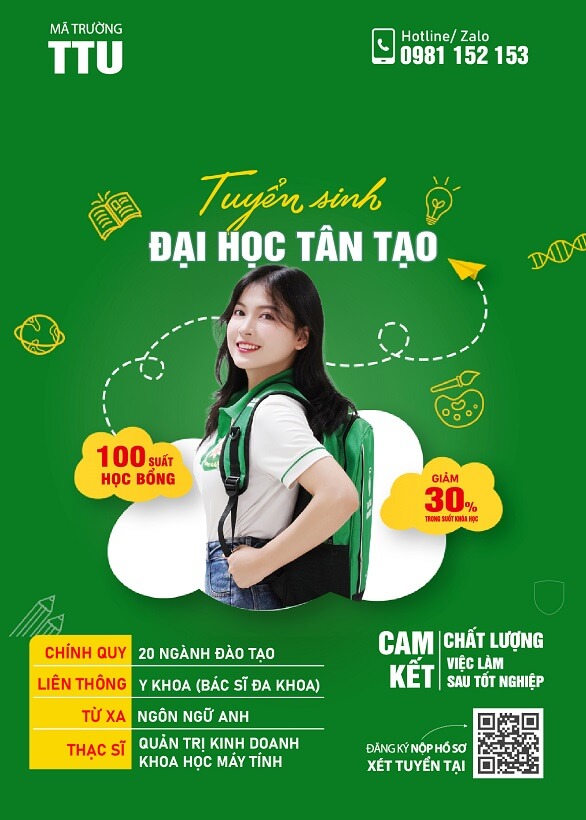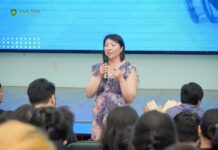Professor – Doctor Peter Singer – Professor of Clinical Medicine, Head of the Department of Clinical Endocrinology at the University of Southern California School of Medicine, former President of the American Thyroid Association, member of the Association’s Executive Council American clinical endocrinologists and professors gave a congratulatory and sharing speech to the new doctors graduating from Tan Tao University on October 29, 2023.

Today, we are here to show that you have finally realized your dreams, you did it! You’re doctors now! Or almost, since you need to wait until the end of the ceremony today to take the oath. But close enough. So, congratulations to you, for your hard work, dedication., and passion. Congratulations also to the parents, other family members, and friends of the new graduates. Their journey has been made easier by your encouragement and support! You are an important part of this celebration. And, of course, congratulations and gratitude to Dean Thach Nguyen and the faculty for leading you on this journey.

Young doctors, your training has been unique, since a significant part of it was during the most devastating public health crisis in a century, in which the pandemic took the lives of more than 6 million people worldwide, including more than 43,000 people in Vietnam, and more than 1.1 million people in my country, the US. For context, 93 % of people in Vietnam received at least one Covid vaccine, compared with 82 % in the U.S. Vietnam has been a leader in vaccination rates, and in keeping mortality rates relatively low, compared to other parts of the world.
While you were studying to become doctors, you were witnesses to the skill of scientists who developed the vaccines, as well as the skill of physicians and others in the health care field who worked to control the pandemic. You witnessed how health care workers unselfishly put themselves in harm’s way in order to help others. And now you joining this fraternity of healers. You are going to work side by side with the leaders of today, and then, in time, you’ll take over. Yes, you’ll be the leaders of tomorrow. That’s pretty scary, but it’s pretty cool, right?
By the way, hopefully you might never need to treat, polio, measles, diphtheria, hepatitis, and a number of other diseases, thanks to vaccines, some of which were not available or administered when your grandparents or parents were kids. Yes, it’s true, your grandparents and parents were kids once. My sister had polio, a cousin died from polio, I had measles chicken pox (varicella), whooping cough (pertussis) when I was a kid.

So, what about today. You have worked so long and hard to get to this point. I’m sure you all have non-medical school friends who tried to get you to go to movies or go to parties; maybe join them playing video games (please don’t do that) while you stayed home to study. At times you might have gotten discouraged, and wondered if all this hard work and sacrifice is worth it. Well, take it from me. Every time you help a patient, you’ll know it’s worth it.
Which reminds me of a story. A long time ago I was a medical student. I studied really hard. I studied all the time, every night, every weekend. I studied so hard my brain hurt. I was tired all the time; I got discouraged when I saw that so many of my classmates didn’t need to study as much as I did. Maybe it’s because I wasn’t that smart. I came from a family where nobody had an education. We were refugees from Nazi Germany. I grew up in San Francisco where my father had an upholstery shop and repaired furniture; we spoke German at home.
During my second year I told my father I didn’t think I had what it takes to be a doctor. Even though he didn’t get very far in school, my dad was very wise, and told me something that I have carried with me all these years. He said that if I saved only one life during my career, all my efforts will have been worthwhile. And I have done that, many times over, and in various situations. Think about it young doctors; with your training, knowledge and skill you’ll be able to go anywhere in the world, if you so choose, and go right to work, and treat sickness, perform surgery, and yes, save lives. Who else can do that? A lawyer can’t; an engineer can’t; an architect can’t; but you can. My father was right. As physicians, your possibilities to do good, to alleviate pain and suffering are endless. Isn’t that a wonderful gift?!

Now, as you’re beginning your new journey, what about the future of medicine? Clearly, it’s becoming more data driven. There are algorithms and there are guidelines, for everything from Professor Nguyen’s specialty, cardiology to my field of endocrinology, telling us what tests to order, and what drugs to use. And there’s the emergence of artificial intelligence, to help in making the diagnosis. But guidelines and AI don’t tell us how we should listen to a patient who is worried, how to comfort a family member, or how to hold a hand. . That’s up to you, to me, to Thach Nguyen and all of you. Published guidelines are useful, but they and AI should serve as our assistants, and not the other way around. AI will never have empathy or passion, or the ability to comfort the patient in front of you in the clinic or at the bedside.
- Listen to what your patient is telling you. if you listen carefully you’ll almost always make the correct diagnosis.
- Respect your patient. If you don’t, they’ll know it, and they won’t trust you.
- Touch your patient. Greet him/her with a handshake or gentle touch. It’s comforting and helps put your patient at ease.
- Respect those people you work with—the nurses, technicians and everyone on the health care team. Teamwork is essential.
- Don’t complain to your patient about personal issues. Leave your problems and other concerns at home. When you’re together it’s all about the patient—mot tram tram! 100%.
- Show empathy, compassion, and kindness. Always. Yes, always.
- Continue to study and learn. Keep an open mind. Medicine is constantly evolving, and there’s always so much new and exciting to learn! That’s what makes it so much fun.
- Know what you don’t know. Don’t be afraid to ask questions. After all, there’s always someone who knows more than you do. I’m aware of that every day!
- Have fun. Medicine is so demanding, both on your time, as well as physically and mentally. So, make sure you find the right balance. Yes, it’s ok now to go to movies and parties… sometimes.
- Finally, and importantly, honor the oath that you will take today.

Oh, and just for today I’ll add an 11th rule: Make sure you thank your parents, friends, other family members, and your professors for helping get you to this point. And to you parents and others here today, I’m sure you’re looking forward to seeing the positive difference these new doctors make in the world of medicine and in society.
Finally, new graduates, look around at your classmates now. You probably didn’t think about this, but after working so hard together over the past 6 years, today is the last day you will all be in one place with each other. You’ll go on to different hospitals, end up practicing in different specialties, and go on living your lives. So, class of 2023, make sure you enjoy each other today, and congratulate each other.

And from me, I wish to thank the leadership of Tan Tao University for the honor of speaking to you today; and to you new physicians, I wish you all success, happiness and fulfillment in our honorable profession.




